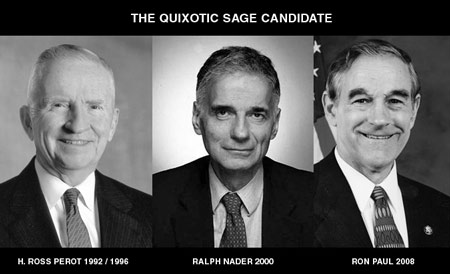A long time ago when I was a courier for Fedex I had a dropbox on my route at the front of a vacant office building. While emptying it of overnight-letter envelopes one evening, I noticed the tiny body of a gecko tucked into the lower lip of the dropbox door. As I had to empty the box each day, I noticed that over the next few days the gecko started to rot. The stench was amazingly potent and widespread especially considering how small it was. It got worse and worse until one day the smell was gone. I popped open the door to empty the dropbox and looked down to find a naked gecko skeleton. A single fat maggot was curled inside the ribcage.
I was amazed at the transformation. The gecko had probably died a few days before after getting trapped inside. Then bacteria had gone to work digesting its dead flesh. Then a fly detecting the stench had come along and laid an egg on the corpse where this newly hatched maggot had made quick work of the remains. Now finally, this maggot was preparing to develop into a fly. It was the circle of life played out in miniature.
It got me thinking. Can we really call ourselves individuals? You can shave off some of your cells and grow them in a dish for years if they have access to enough food. Are those cells you? Where does your body end and you begin? Is it just that plants and animals evolved as intelligent vehicles for multi-cellular life? In other words, what if consciousness is just a highly developed system for protecting and reproducing life? What if we, our consciousnesses, are just an adaptation to better promote a lower-level biological imperative? What if our minds are just the pilots for a lifeboat of individual cells and creatures? A Portoguese Man O’War is a colony of organisms working together as one unit. Maybe we are not much different. In biology there is this theory that the individual organelles of our cells, like mitochondria, were once separate organisms who were taken inside other prokaryotic organisms to live together as endosymbionts. As a single organism. Did the separate natures of each creature disappear when they became one?
What are you? Consider that your body cycles much of its components on a monthly basis as your cells divide, tissues replenish, waste excretes, and nutrients move through your system. Physically, you are never the same person twice. If that is the case, what makes you you?
We know that a body can be kept biologically alive without higher-level brain function. I’m no atheist by any means, but I do have to wonder. As every dream and thought I have experienced has taken place within my body, what happens when my body ceases to function and dies? It stands to reason that whatever I am also dies.

 I have been reading the first volume of Robert Caro’s biography of President Lyndon Johnson,
I have been reading the first volume of Robert Caro’s biography of President Lyndon Johnson,  Do you ever wonder how much your way of life is based on arbitrary concepts and social tradition? Why do people own homes or rent apartments? Wouldn’t it be better if we all lived in shared dorms and made better use of mostly empty living space? Why do some people travel and move frequently while others live in one place their entire lives? Aside from a basic necessity for shelter, what motivates people to live the way they do? What ways can we live better? In what ways can we take advantage of modern technology to improve life? What options are we missing?
Do you ever wonder how much your way of life is based on arbitrary concepts and social tradition? Why do people own homes or rent apartments? Wouldn’t it be better if we all lived in shared dorms and made better use of mostly empty living space? Why do some people travel and move frequently while others live in one place their entire lives? Aside from a basic necessity for shelter, what motivates people to live the way they do? What ways can we live better? In what ways can we take advantage of modern technology to improve life? What options are we missing?